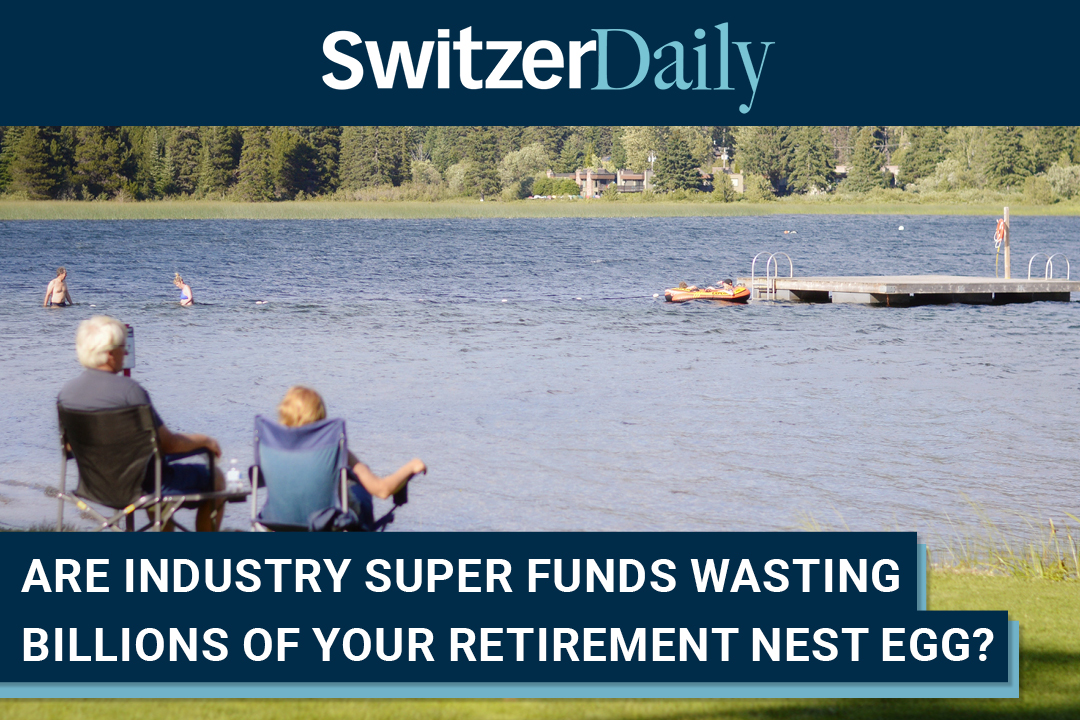

Industry super funds have promoted themselves as the leaders in returns for Australians’ superannuation balances, regularly topping the tables of best performers. But how does a group of funds do this, given their backgrounds in the union movement and some employer groups?
And is the Daily Tele’s Ben Butler right in arguing that these funds, which manage over a trillion dollars, are wasting billions of members’ money on high-flying fund managers and other services. “Official statistics show that over eight years to 2022, super funds streamed $18.2 billion from retirement savers to fund managers, part of a $45.3 billion bonanza enjoyed by an army of administrations, consultants, lawyers and other service providers hired by the sector,” Butler writes.
Butler says experts question whether fund members get value for money, with the average cost to members for having their super funds managed about 1%. Others industry funds are lower and it must be said that the industry super funds have consistently topped the performance tables.

Source; SuperRatings.com.au
(These are for the three years ending 31/1/23)
Most of these above are industry super funds and the returns do reflect the tough times over the past three years, with the crash of financial markets with the Coronavirus. Then last year rising interest rates KO’d both the stock market and the bond market at the same time. That has only ever happened three times and two of those was during the 1930s Great Depression!
The Tele points out that Australian Super, which interestingly isn’t in the Top 10 table (that hasn’t happened often) paid $669 million in investment expenses last year, ART forked out $350 million and Aware $479 million.
Butler says the most expensive fund is Perpetual Select, which charges members 2.05% on $50,000 managed, but it lost members 6.1% last year. Meanwhile, REST Super charged 0.27%, though it did lose 8.5% last year.
Looking at last year only is a tad unfair because most funds lost last year but they are bouncing back.
That’s why I showed the 3-year returns table above from SuperRatings. However, that said, the outlays on experts and investment banks does look huge and effectively reduces what these funds pay out over time.
On a last year basis, if super funds simply put their money into an Exchange Traded Fund, such as iShares Core S&P/ASX 200 ETF or IOZ, where the fees are less than 0.2%, they would’ve made about 3% and not lost like many of these top super funds.
CanStar’s Steve Mickenberger questions whether these industry super funds have done much better than the ETF that I looked at, considering their outlays for services from the likes of Perpetual and Macquarie.
It’s fair to ask about these big spending items for industry super funds. And considering what Australian Super pays out and looking at their recent returns, it might be time for its Board to question the value of the experts they’re paying big bucks to.
They might also look at some of their advertising material, which makes their returns to members look rosier than they’ve been lately.
Don’t get me wrong, I think industry super funds are a good development for super. However, bossing around companies and channelling members’ money into political and social activities doesn’t help member’s returns. Super is actually driven by something called the Sole Purpose Test.
Anyone who runs an SMSF is told by the ATO: “Your SMSF needs to meet the sole purpose test to be eligible for the tax concessions normally available to super funds. This means your fund needs to be maintained for the sole purpose of providing retirement benefits to your members, or to their dependants, if a member dies before retirement.”
It means you can’t buy a flat to house your kids because that sole purpose would be to look after your family rather than building your wealth for retirement.
I think industry super funds are getting a little too big for their boots, and they might need to get real and more down to earth on what they say and do.
They should also revisit their Sole Purpose Test.